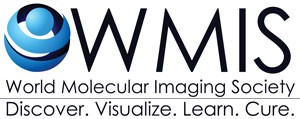
WIMIN Leadership

Nerissa Viola, PhD, Chair
Wayne State University, USA
Nerissa Viola is an assistant professor at the Department of Oncology at the School of Medicine at Wayne State University (WSU). She is the current co-leader of the Molecular Imaging Program at Karmanos Cancer Institute (KCI) in Detroit, MI. She obtained her PhD in Chemistry at Syracuse University under the mentorship of Prof. Robert Doyle. She was a postdoctoral research scholar at Memorial Sloan Kettering Cancer Center under the guidance of Prof. Jason S. Lewis. Her research at KCI/WSU centers on the development of radiopharmaceuticals for the delineation and measurement of oncogenic biomarkers and immune molecules. Since she started her tenure track position, she was a recipient of several awards including a teaching award and outstanding junior faculty at WSU. She is a NIH funded investigator, a member of the WMIS Educational Committee and serves on the editorial board of JNM, Nuclear Medicine and Biology and Cancer Biotherapy and Radiopharmaceuticals.
As a single mom, she has and continues to experience the struggles women face to balance family life and a career, especially in the STEM field. Through her role at WIMIN, Nerissa hopes to advocate the careers of women scientists by creating a support network within the imaging community.

Quan Zhou, PhD, Co-Chair
Stanford University, USA
Quan is an Instructor in the Department of Neurosurgery and the Molecular Imaging Program at Stanford (MIPS), where she leads a Phase I/II clinical trial on molecular targeted fluorescence-guided surgery to improve resection accuracy of brain malignancies. She has established a clinical theranostic imaging and
analysis framework to predict therapeutic distribution in brain tumors from clinical, radiographic and tumor microenvironment features. Her research interests also include molecular imaging of intratumoral immunosuppression of high-grade glioma and enhanced antibody delivery across the blood-brain barrier.
Dr. Zhou studied Applied Biology and Chemistry on a four-year full ride scholarship at Hong Kong Baptist University. She obtained her MS and PhD in Biomedical Engineering at the University of Michigan, Ann Arbor, where she was awarded the Richard and Eleanor Towner Prize for Distinguished Academic
Achievement. Dr. Zhou’s doctoral research on optical and photoacoustic imaging for early detection of liver and colorectal cancers with molecular targeting probes received the American Gastroenterological Association Research Foundation Award. Her recent work identified factors that influence clinical imaging
outcome and was recognized with the Alavi-Mandell Award from the Society of Nuclear Medicine and Molecular Imaging.
Dr. Zhou has served as a mentor and counselor for students of all ages and backgrounds. In 2017 she became the first non-faculty recipient of Willie Hobbs Moore Aspire Advance Achieve Mentoring Award recognizing her outstanding mentorship in multiple academic, outreach and athletic programs, and her
leadership roles in the Society of Women Engineers, the engineering honor society (Tau Beta Pi) and the University of Michigan Table Tennis Club. Presently, she chairs the MIPS Trainees Council and co-chairs the Women in Molecular Imaging Network (WIMIN) interest group where she leads the
Fundraising/Auction Committee.
In recognition of her contribution and leadership in the realm of molecular imaging, Dr. Zhou was honored with the WIMIN Rising Star Award in 2023 by the World Molecular Imaging Society.

Una Goncin, PhD, Secretary
University of Saskatchewan, Canada
Una Goncin is a PhD student at the University of Saskatchewan, Canada. She was awarded the prestigious CIHR Frederick Banting and Charles Best CGS-Doctoral Award. She previously received her BSc in Biology from the University of Regina in 2017. Her current research combines a PET contrast agent for rapidly imaging active inflammation and a quantitative MR sequence for detecting bowel fibrosis. Her aim is to develop a comprehensive approach to monitoring inflammatory bowel disease activity and progression in a single imaging session. She is incredibly passionate about making science accessible to all. She worked closely with Science Outreach programs that deliver science programming to community school classrooms and educational sessions at the Museum of Natural Sciences. She holds several leadership positions at the College and University level as an advocate on behalf of research trainees. As part of the WIMIN Leadership Committee, she aims to inspire and support other trainees and underrepresented minorities in STEM.

Kelly Henry, PhD,
Past Chair 2023; Invicro LLC, USA
Dr. Henry is currently a Study Director at Invicro, where her role entails scientific lead and management of teams to ensure that chemists, imaging scientists, and analysis experts work synergistically to execute successful preclinical and translational imaging studies. Her research expertise includes biochemistry, radiochemistry, and molecular imaging to interrogate dynamics of biological processes in oncology, immunology, neuroinflammation, and rare disease spaces.
Kelly completed her ACS-certified B.S. degree in chemistry from Marist College in Poughkeepsie, NY. She completed her Ph.D. in chemistry at Syracuse University in Syracuse, NY, in 2015, where she was co-advised by Robert Doyle and Jon Zubieta, and studied appetite-regulating peptides using vitamin B12 as a drug delivery vehicle. Kelly completed by a 5-year postdoctoral fellowship at Memorial Sloan Kettering Cancer Center in the lab of Jason Lewis, with a primary focus on imaging target engagement and oncogenic signaling in pancreatic cancer and glioblastoma. Kelly was awarded a Tow Fellowship, a prestigious grant awarded to both pre-and postdoctoral fellows working in the field of molecular imaging and nanotechnology at MSK.
Kelly is a selected member of SNMMI’s “30 under 35-One to Watch” and is a recipient of the Robert M. Scarborough Award for Excellence in Medicinal Chemistry through the American Chemical Society. Her work throughout the years has received two Alavi-Mandell Awards and has been featured in Young Investigator Award sessions at both WMIC and the SNMMI annual meetings. Kelly currently leads the Visions series through WIMIN, an article series published at Molecular Imaging and Biology focused on diversity, equity, and inclusion.
Kelly is beyond grateful to have had several inspiring female mentors throughout her career trajectory. As such, she is dedicated to fostering the professional development of young women scientists and is involved in mentoring at Invicro and through the New York Academy of Sciences.
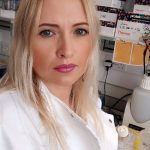
Gabriela Kramer-Marek, PhD
The Institute of Cancer Research, UK
Gabriela Kramer-Marek received her Ph.D. degree (graduated with honours) in 2005 in Medical Physics from Silesian University, Poland and the following year she joined the Radiation Oncology Branch, NCI/NIH, USA to work on the development and characterisation of molecular probes for in vivo detection and quantification of tumour-specific markers. During this time, her research outputs were outstanding and resulted in multiple awards, including: the Fellows Award for Research Excellence (FARE) 2008, in Recognition of Excellence in Biomedical Research, NIH Office of Intramural Research; the 2008 Award for Research Accomplishments given by the Director of the Centre for Cancer Research, NCI/NIH; the Award for the Outstanding Postdoctoral Fellow of NCI 2010, NCI/NIH. In January 2012, she accepted her first faculty position (Research Assistant Professor, non-tenure track) in the Department of Medicine, Indiana University School of Medicine, USA. After a year she moved to Europe and started her Career Development Faculty position at the Institute of Cancer Research (tenure-track) in London, UK where she also obtained in 2020 the Associate Professor position. Gabriela’s team is currently investigating novel imaging agents, with the central goal of linking imaging studies, biological insights and translational opportunities.

Srivalleesha Mallidi, PhD
Department of Biomedical Engineering, Tufts University, USA
Srivalleesha Mallidi received her Master’s and Ph.D. Degree in Biomedical Engineering from the University of Texas at Austin. Her graduate work was on molecular specific photoacoustic imaging to understand nanomolecular interactions. She received New Investigator Award from the Central Texas Clinical Research Forum for this work. After graduation, she joined Wellman Center for Photomedicine at Massachusetts General Hospital (MGH), Harvard Medical School with a goal to translate the imaging techniques to clinic, and was a NIH Ruth L. Kirschstein postdoctoral fellow. She won several awards during her postdoctoral tenure at MGH including the Young Investigator Award at the Frontiers in Biomedical Imaging Science Symposium held at Vanderbilt University. She was also awarded the American Society of Lasers in Medicine and Surgery Research Award for junior faculty. Currently, Dr. Mallidi is Assistant Professor at the Department of Biomedical Engineering at Tufts University, Medford, MA, and she directs the integrated Biofunctional Imaging Laboratory that focuses on utilizing non-invasive acoustic and optical imaging techniques to understand the structural, functional and biomechanical heterogeneity in pathologies and utilize the information for surgical guidance and design of effective therapies.
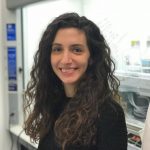
Filipa Mota, PhD
Johns Hopkins University, USA
Dr. Filipa Mota is a Research Fellow at Johns Hopkins University, focusing on radiotracer design and development for infectious diseases imaging. Filipa completed a Ph.D. in chemical biology and medicinal chemistry at University College London in 2014, after which she joined a biotech as a medicinal chemist. Dr. Mota was a Research Associate at King’s College London from 2016 to 2019, where she undertook training in molecular imaging and led the development of new small molecule radiotracers for oxidative stress. Her research at Johns Hopkins University combines the design, synthesis, and preclinical characterization of new radiotracers with clinical translation efforts, with the aim of monitoring and optimizing antimicrobial treatments.
Filipa is often found teaching and speaking at educational outreach initiatives and public engagement events and aims to make science a more inclusive and diverse field of work.
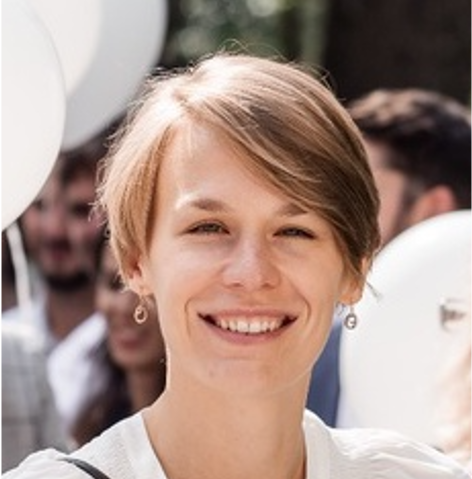
Laura Lechermann, PhD
Genentech, Inc., USA
Laura received her Bachelor’s degree in Chemistry and Master’s degree in Inorganic Chemistry/Radiopharmaceutical Chemistry from the Technical University Munich (TUM). During her Master’s degree she gained extensive experience in radiotracer development and validation with a focus on the use of the two Positron Emission Tomography (PET) isotopes gallium-68 and copper-64 for the imaging of the prostate specific membrane antigen (PSMA). During this time, she also undertook research at the Peter MacCallum Cancer Centre and at the University of Melbourne in collaboration with Dr Peter Roselt, Prof Rodney Hicks and Prof Paul Donnelly.
Laura completed her PhD in the Department of Radiology at the University of Cambridge where she has established the use of Zirconium-89 for cell labeling and tracking under the supervision of Prof Ferdia Gallagher. She continued as a Postdoctoral Research Associate in Cambridge after finishing her PhD in 2021. Laura then moved to Amsterdam to start her Postdoctoral Research Associate position at the Amsterdam University Medical Center (UMC) in 2022 which also focused on cell labeling and tracking using zirconium-89. Throughout her studies and postgraduate degree, Laura secured various scholarships (four-time awardee of the ‘Deutschlandstipendium’; Cancer Research UK Scholarship; GSK PhD studentship) as well as a WMIC travel and poster award in 2021.
Laura made the move into industry in 2023 and currently works as a Research Fellow at Genentech in South San Francisco in the radiochemistry and PET imaging lab.
Laura has a passion for metalorganic chemistry and tracer design in particular in the field of PET imaging. Her main scientific interests include onco-immunology and immuno-PET, immune cell therapies, cell engineering, cell labelling and tracking including radiotracer development using radiometals. She has a keen interest to transfer her skills to other research fields and thus expand her expertise. Throughout her PhD and academic Postdocs Laura has collaborated with several industrial partners and has gained some insight into this sector from an academic angle and is therefore interested to connect with others that are interested in molecular imaging and networking across both the pharmaceutical industry and academia. Outside of her daily research activities she also took on several roles in her previous department such as Student Representative, Green Impact Champion and E&D and wellbeing champion. Laura is excited to be part of WIMIN and being part of a wider support network to foster diversity and inclusion in both industry and academia. Laura is grateful for the excellent mentorship throughout her career so far and hopes to be able to reciprocate some of it to others.
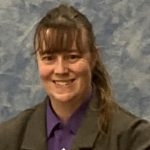
Lacey McNally, PhD
University of Oklahoma Health Science Center, USA
Dr. Lacey McNally received her Ph.D. in Veterinary Medicine at Louisiana State University and completed her post-doctoral fellowship at the University of Alabama at Birmingham. While at UAB, she was awarded a K99 grant from NIH. Dr. McNally was an Assistant Professor at the University of Louisville and an Associate Professor at Wake Forest Comprehensive Cancer Center where she also served as Co-Leader of the Signaling and Biotechnology Program (CCSG). Currently, she is a Professor, Stephenson Chair in Cancer Imaging, and Co-Leader of Cancer Therapeutics at the Stephenson Cancer Center, University of Oklahoma. Dr. McNally is a Standing member of the Imaging Probes and Contrast Agents study section. She teaches a grant writing course for graduate students and post doctoral fellows. Dr. McNally has been continuously funded by NIH for the last 13 years and her work focuses on development of contrast agents, nano-drug delivery systems, and translation of optoacoustic imaging into the clinic. She has an active laboratory and mentors undergraduate and graduate students, post-doctoral researchers, clinical residents and fellows as well as visiting science scholars. Dr. McNally is the PI of two investigator-initiated clinical trials and largely focuses her research in recalcitrant cancers.
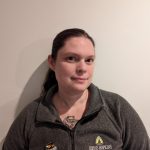
Caitlin Tressler, PhD
Johns Hopkins University School of Medicine, USA
Dr. Caitlin Tressler is an Assistant Professor in the Department of Radiology and Radiologic Sciences and the Assistant Director of the Applied Imaging Mass Spectrometry (AIMS) Core at Johns Hopkins University School of Medicine. They obtained a B.S. in Biochemistry from Indiana University of Pennsylvania and a Ph.D. in Chemical Biology from the University of Delaware with a focus on development of 19F MR probes. Dr. Tressler moved on to Johns Hopkins University School of Medicine for a postdoctoral fellowship in molecular imaging and cancer under Dr. Kristine Glunde with a focus on multimodality imaging of response to treatment. During this time, they also set up and ran daily operations in the AIMS Core with a focus on advanced imaging methods for quantitative drug imaging. In transitioning to an independent career, they are focusing on molecular imaging of infectious disease and countermeasures for nerve agent exposure. Dr. Tressler is also very dedicated to training the next generation of molecular imaging scientists and works with introducing undergraduates to MALDI imaging. Through WIMIN Dr. Tressler hopes to build a more inclusive, diverse, and intersectional space within molecular imaging.

Izabela Tworowska, PhD
RadioMedix Inc, USA
Izabela Tworowska serves as the Chief Scientific Officer and co-founder of RadioMedix. She obtained her MSc in Clinical Pharmacy from Medical University in Poland and her Ph.D. in organic chemistry from the Polish Academy of Science in 2001. She completed the pre-doctoral training at Goethe University (Frankfurt am Main, Germany) and post-doctoral training in biochemistry and structural biology at Rice University (Houston, TX). Her research focuses on the radiochemistry, pre-clinical validation, and clinical studies of radiotheranostic drugs that target solid tumors (NETs, glioblastoma, PDAC, hepatocellular carcinoma) with special interest in targeted alpha-emitter therapy. She is leading the R&D and translational program at RadioMedix.

Alita D Almeida
University of California, Davis, USA
Alita D Almeida is a third year PhD student in Biomedical Engineering at the University of California, Davis and a graduate student researcher with the Chaudhari lab at the Department of Radiology. She is an aspiring medical physicist, and her research is primarily in preclinical neuroimaging with projects in developing methods for analysis of MRI and PET scans in rodents, titi monkeys and rhesus macaques as well as in the development of methods to quantify imaging data. Alita obtained her undergraduate degree in Electronics and Communication Engineering from India and her undergraduate research was in micro-electromechanical systems for tuberculosis detection. She also has industry experience specializing in Embedded Systems. Alita is a member of the Biomedical Engineering Student Association (BESA) where she co-chairs the BESA Publicity and Recruitment divisions and is also a mentor to incoming graduate students. She is passionate about creating inclusive learning environments and advocating for equitable opportunities for everyone.

Apurva Pandey, PhD
University of California, San Francisco, USA
Apurva Pandey is a Postdoctoral Fellow at University of California, San Francisco in the department of radiology and biomedical imaging. Currently, she is working on testing various novel small molecules and antibody probes as potential diagnostic probes different infections and cancer models. She obtained her B.Sc.(H) and M.Sc. at the University of Delhi, India. In 2021, she received her Ph.D. in Chemistry from Stony Brook University, New York, under the supervision of Dr. Eszter Boros. During her Ph.D. she worked on developing, synthesizing, and testing metallo-siderophore-antibiotic conjugates as theranostic probes for bacterial infections. Apurva is an experienced radiochemist and interests in taking imaging probes from bench to bedside. She is a recipient of the Jon Rudick Memorial Award for Outstanding Doctoral Student (2021-2022) and Women In Molecular Imaging Network (WIMIN) Scholar Award (2022). Apurva is extremely grateful for the constant support provided by her mentors throughout her academic career. Through her role in WIMIN, she aims to provide the same support to other underrepresented women in
the field on molecular imaging.

Bao Ying Chen, PhD
City of Hope-Beckman Research Institute, USA
Bao Ying Chen is currently a postdoctoral fellow with Dr. Anna Wu in the Immunology and Theranostics department at the City of Hope-Beckman Research Institute. Bao completed her PhD training at University of California-Los Angeles in the lab of Dr. Peter Clark where she worked on developing and evaluating metabolic PET imaging strategies to investigate and target immune activation in autoimmunity. Currently, she is investigating the use of targeted radioimmunotherapy for pancreatic cancer. Broadly, her research interests include molecular imaging, antibody engineering, cancer, and autoimmunity. Bao is grafteful for all the inspiring mentors that she has met throughout her science career and is hoping to be able to pass on what she learned to others.

Bian Jang
University of Pennsylvania, USA
Bian Jang is a fifth-year PhD student in Bioengineering at the University of Pennsylvania and a graduate researcher with the Dr. Tsourkas lab. She is a highly motivated engineer and her research is focused on developing new magnetic devices to accelerate the accumulation and penetration of nanoparticles into deeply seeded tumors. Her goal is to improve both imaging contrast and treatment efficacy for cancer patients.
Bian has extensive experience in conducting both in vitro and in vivo experiments, as well as in various molecular imaging modalities, nano drug delivery, and laser-based cancer therapy. She obtained her undergraduate and master’s degrees in Biomedical Engineering from Pukyong National University in South Korea, where she was involved in research in diverse fields such as photoacoustic imaging, immunotherapy, and osteomyelitis through collaborations. Her exposure to these different research fields has broadened her knowledge base and allowed her to apply interdisciplinary approaches to her current research.
As a member of the WIMIN leadership committee, Bian is committed to creating an inclusive environment and supporting the motivation and potential of female professionals.

Biyue Zhu, PhD
Massachusetts General Hospital/Harvard Medical School, USA
Dr. Zhu is a postdoctoral fellow at Martinos Center for Biomedical Imaging, Massachusetts General Hospital/Harvard Medical School. Her research expertise includes molecular imaging, drug discovery, biochemistry, drug delivery system, and pharmaceutical science.
Biyue completed her B.S. degree from Sichuan University at 2015. She continued her study at Sichuan University and received Ph.D degree at the year of 2020. During her Ph.D study, she joined Martinos Center as an exchange Ph.D student under the supervision of Dr. Chongzhao Ran. She received intensive training in drug discovery and molecular imaging for neurodegenerative diseases. After graduation, Biyue continued her research at Martinos Center as a postdoctoral fellow.
During her study, she led several projects and collaborated with multi-discipline teams. She has developed optical imaging probes and discovered new drugs targeting biomarkers including amyloid-beta, tau, alpha-synuclein, prion, and TDP-43 proteins. She has received Young Investigator Award from Alzheimer’s Drug Discovery Foundation (2020), Travel Award, and WIMIN Award from World Molecular Imaging Congress (2017; 2020, and 2022).
Biyue is proud of her role as a female scientist and also enjoys her role as a dance artist after work. She has participated in dance activities at Harvard Community. She also volunteered as a dance teacher for young students and an artist for dance filming.
Biyue believes that diversity can foster creativity, share love, and guide us to a better future. She has participated in the WIMIN workshop and discussed with others about diversity, equity, and inclusion. She is grateful to the WIMIN community, which recognizes her work and supports her in pursuing her career as a female scientist. Biyue believes in the power of women and is dedicated to sharing her experience, contributing to the society, and encouraging other women scientists to join our science community.
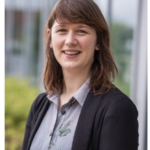
Emma Brown, PhD
Cancer Research UK Beatson Institute, UK
My research interests surround the use of molecular imaging to non-invasively probe tumor evolution, and the biological validation of in vivo imaging signals, to advance our knowledge on which imaging metrics provide the most useful insight into the underlying tumor biology. During my Ph.D in Cambridge, UK, my work focused on photoacoustic imaging of breast cancer mouse models. I was awarded the WIMIN Scholar Award in both 2021 and 2022 and came runner-up in the Cancer Research UK Cambridge Institute thesis prize in 2020/21. Whilst studying for my Ph.D, I acted as Deputy Laboratory Manager, Public Outreach Coordinator and mentored undergraduate and masters students.
Before my Ph.D I gained a BSc. Bioveterinary Sciences from the Royal Veterinary College, University of London. In-between the second and final year of my undergraduate course, I completed an Industrial Placement Year at GlaxoSmithKline (Stevenage, UK) and was lucky enough to experience research in an industry environment here.
After completing a postdoc at Washington University in St. Louis, I moved back to the UK and now work as a Postdoctoral Research Associate at the Cancer Research UK Beatson Institute, focussed on using pre-clinical PET and other imaging modalities to probe local and systemic changes in metabolism during tumor development.
Outside of the lab I love to sing and was a Wolfson College Choral Scholar during my time in Cambridge.
I joined the WIMIN committee after feeling inspired and empowered at previous fireside chats and other WIMIN networking-events and want to give back and serve on the committee, to support women and minorities in this field. I want to help WIMIN reach UK and European audiences, to continue to increase the diversity of those involved.

Ivis F. Chaple Gore, PhD
University of Tennessee, Knoxville, USA
Ivis F. Chaple Gore is an Assistant Professor in the Nuclear Engineering department at the University of Tennessee, Knoxville, and her research focuses on the development and characterization of novel radiopharmaceuticals for diagnostic imaging of various disease states, such as cancer. In 2021, she received her Ph.D. in Biochemistry through the Graduate Biomedical Sciences Program at the University of Alabama at Birmingham, under the mentorship of Dr. Suzanne E. Lapi. Ivis then completed a postdoctoral research associate position at Los Alamos National Laboratory, under the mentorship of Dr. Michael Fassbender, which she completed in 2022. At the University of Tennessee, Knoxville, Ivis is working to develop a radiochemistry program, with a focus on nuclear medicine applications.

Maryam Hajfathalian, PhD
New Jersey Institute of Technology (NJIT), USA
Dr. Maryam Hajfathalian is an Assistant Professor of Biomedical Engineering at NJIT, whose research focuses on the development, synthesis, and characterization of theranostic nanomaterials to detect and treat cancer and infectious diseases. She was a postdoctoral research scholar at the School of Medicine at Stanford University, Division of Infectious Diseases, and the University of Pennsylvania, Radiology Department, under the mentorship of Professors Paul Bollyky and David Cormode. Her achievements include receiving an NIH NIBIB K99/R00 Pathway to Independence Award, a Stanford Woods Institute for the Environment Grant, and various recognitions such as a Science Slam Presentation Award, a First Place Poster Presentation Award, and the WIMIN Scholar Award in World Molecular Imaging Conferences. Despite her professional achievements, Dr. Hajfathalian also embraces the role of motherhood, acknowledging the challenges of balancing academic pursuits with family responsibilities. She is dedicated to promoting diversity and inclusion in academia and industry, viewing teaching, and mentoring as vital opportunities to support the educational goals and personal growth of females and underrepresented minorities. Actively involved in organizations like WIMIN, she seeks to learn from others’ experiences, share valuable networks with colleagues and students, and contribute to the advancement of women in molecular imaging and beyond.
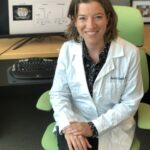
Myriam Chaumeil, PhD
University of California, San Francisco, USA
Dr. Chaumeil is an Associate Professor in Residence in the department of Physical Therapy & Rehabilitation Science and Radiology & Biomedical Imaging at UCSF, a faculty member of three graduate programs (UCSF/UC Berkeley BioEngineering; UCSF Biomedical Science and UCSF Rehabilitation Science), and an investigator in the Quantitative Biosciences Institute. Her research focuses on developing new neuroimaging methods to improve the diagnosis and monitoring of neurological disorders, such as Alzheimer’s disease, Multiple Sclerosis or vascular dementia. She is a Junior Fellow of the International Society of Magnetic Resonance in Medicine, and has been recently elected on the board of the ISMRM Hyperpolarized Study group. In addition to her research, she serves as the Faculty Chair of the UCSF LGBTQ committee, as a core member of the Academic Senate Committee on Research as well as several other committees. Dr. Chaumeil grew up in the south of France, and received her engineer degree and her PhD degree in Paris as a First Gen, before moving across the world to California to join UCSF. In WIMIN, she is interested in being involved in helping mentor women students and faculty, and in improving current climate around diversity, equity and inclusion, as well as discussing prospects on gender equity in STEM.

Nivin N. Nyström, PhD
California Institute of Technology, USA
Dr. Nivin N. Nyström completed her PhD training in the Department of Biophysics at the University of Western Ontario in Canada. Her PhD focused on developing an MRI reporter gene to track spontaneous metastases in animal models with high sensitivity and high resolution. During this time, she also worked on photoacoustic imaging and MR contrast agent development. Dr. Nyström defended her thesis “A Genetically-Encoded Reporter for In Vivo Imaging in Deep Tissues” in 2020, and in 2021 was elected Junior Fellow of the International Society for Magnetic Resonance in Medicine (ISMRM). That same year, she drove cross-continent to Southern California where she currently resides as a postdoctoral scholar in the Department of Chemical Engineering at Caltech, working with Professor Mikhail Shapiro. Her current research is supported by a Life Science Research Foundation (LSRF) fellowship, and is focused on engineering acoustic reporter genes with directed evolution. More personally, Dr. Nyström believes in actively fostering equity and inclusivity to tackle biases against marginalized individuals and to acknowledge their true talents, and that doing so would elevate and accelerate the scientific advancement of human society as a whole.
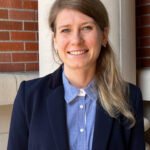
Olga Eremina, PhD
University of Southern California, USA
Olga Eremina completed PhD in Chemistry from the Lomonosov Moscow State University in 2019. Currently, she is an Agilent Postdoctoral Fellow in the Department of Biomedical Engineering and Michelson Center for Convergent Biosciences at the University of Southern California. Olga works on the development of molecular imaging strategies enabling identification of tumor margins and multiplexed deep interrogation of tissues. Surface-enhanced Raman scattering (SERS) imaging at subcellular resolution can facilitate uncovering pathology insights, formulating the right therapeutic strategies, and revealing new prognostic and predictive biomarker correlations. In her work, Olga applies SERS nanoparticle-based contrast agents which provide unsurpassed molecular specificity and quantitative multiplexing capabilities. Olga is grateful to her mentors and is herself passionate about mentoring and supporting women in STEM. Through her involvement in WIMIN interest group, Olga aims to promote female scientists and other minorities in science.

Yingying Ning, PhD
South China University of Technology, China
Yingying received her Ph.D. in Inorganic Chemistry in 2019 at Peking University, when she worked on near-infrared luminescent lanthanide complexes. After that, she joined the group of Professor Peter Caravan at Harvard Medical School in Boston as a postdoctoral fellow, where she worked on metal-based MRI contrast agents for imaging fibrogenesis and fibrosis. Now, Yingying is a new PI at the South China University of Technology and establishing her own lab (from 2023). Her research interest lies at developing metal based molecular probes for early detection of diseases and track treatment response. Yingying was awarded the “Young Investigator Award” at 2021 WMIC, “YIA Runner up” at 2022 WMIC, and also two years of WIMIN Scholar Award. Yingying hope to serve on the WIMIN Leadership committee to support other trainees and early-stage young investigators.

Bernadette Marquez-Nostra, PhD
University of Alabama, USA
Dr. Marquez-Nostra is an Associate Professor in the Department of Radiology at the University of Alabama at Birmingham (2023 – present). Her research focuses on radiopharmaceutical development for imaging cancer and its microenvironment. She also collaborates with industry and clinicians to translate imaging agents to clinical studies. Dr. Marquez-Nostra began her scientific career with a B.S. in Biochemistry from California State University, Fullerton (2005) and earned a PhD in Chemistry from the University of California, Davis (2011) under the mentorship of Prof. Claude Meares. She then delved into radiochemistry and cancer imaging during her postdoctoral training at Washington University in St. Louis (2012-2017) under the mentorship of Prof. Suzanne Lapi and Dr. Farrokh Dehdashti, where she contributed to the translation of [89Zr]Zr-DFO-trastuzumab for PET imaging of patients with metastatic breast cancer. Securing an ERF-SNMMI postdoctoral grant and a K99/R00 Pathway to Independence award granted the opportunity to obtain an Assistant Professor position at the Yale PET Center, where she established a Cancer Imaging and Therapeutics research program and was awarded several grants for her research projects. Finally, she is committed to mentoring students, postdocs, staff, and junior faculty.

Doreen Lau, PhD
Brunel University London College of Health, UK
Dr. Doreen Lau is a Lecturer (Assistant Professor) at Brunel University London College of Health, Medicine and Life Sciences, and visiting researcher at University of Cambridge Department of Radiology. She holds a PhD in Radiology from University of Cambridge and as a Cancer Research UK and Cambridge Trust scholar, focusing on the clinical translation of molecular imaging techniques and imaging biomarkers for cancer immunotherapy. She received postgraduate training from the Imperial College London Cancer Imaging Centre and Institute of Chemical Biology and was a former scientist at A*STAR Singapore and University of Oxford.
Doreen has won several international prizes for her work on immuno-oncology imaging and experimental medicine. These include the 1st Place ISMRM William G. Negendank Young Investigator Award for oncological MRI, WMIS Women in Molecular Imaging Network Scholar Award and Top 3 ESMI PhD Award. She is the current Chair of British yESMI group of the European Society for Molecular Imaging for early career professionals in molecular imaging.
As a young woman scientist who moved from Singapore to the UK, Doreen is an advocate for women, minority and early career scientists. She is excited to join the WIMIN leadership committee and contribute to efforts in empowering women scientists and encouraging equality, diversity and inclusivity in the imaging community. Doreen has a background in fine arts, performing arts and entrepreneurship. She enjoys drawing, music and hiking during her free time.

Johana Carolina M. Vega Leonel, PhD
Stanford University School of Medicine, USA
Dr. Johana Carolina M. Vega Leonel, holding a PhD in NeuroEngineering and Tissue Engineering from the University of Illinois at Urbana-Champaign, specializes in neural network formation and revascularization. Currently, she enriches Stanford University as a Teaching College Fellow, delivering courses such as “Living with Viruses,” “The Cancer Problem,” and her newly accredited Neuroengineering course, “Opening the hood of our brains.” Beyond academia, she co-founded Astute Crew LLC, offering consultancy to startups in Medical Devices and Neuroscience/Neuroengineering, alongside providing technical due diligence for Venture Capital firms. Her distinguished career includes roles as an NSF and NSF-IGERT fellow, leading independent interdisciplinary projects, and a Postdoctoral Fellowship at Stanford’s Neurosurgery Department, working closely with Lawrence Livermore National Laboratories on neural network chips. Additionally, as a mentorship chair on the executive team of the MIPS Trainees Council at Stanford, she plays a crucial role in fostering the next generation of leaders in her field. Dr. Vega’s collaborative efforts extend across Neurosurgery and Radiology departments, underpinning her multifaceted expertise. Her foundational education in Biotechnology was earned at Oglethorpe University and Georgia Institute of Technology.

Natalia Herrero Alvarez, PhD
Memorial Sloan Kettering Cancer Research, USA
Dr. Natalia Herrero Alvarez is a Research Associate in the Department of Radiology at Memorial Sloan Kettering Cancer Research. She conducted her undergraduate education in Chemistry and Biochemistry at Universidad Complutense de Madrid, Spain, and received her masters in Medicinal Chemistry at Utrecht University, the Netherlands. Natalia undertook an industrial placement in the Drug Discovery team at Hoffmann-La Roche in Basel, Switzerland before she completed her PhD in Organic Chemistry & Chemical Biology at the University of Glasgow, UK.
In her current position she focuses on developing molecular entities for targeted nuclear imaging and therapy of cancer. In 2023 Natalia was recognized as the “Ones to Watch” by the Society of Nuclear Medicine and Molecular Imaging. She has regularly been involved in outreach activities to make science accessible to younger generations, particularly those from underrepresented groups . Natalia is committed to help advance the opportunities of women in the STEM field and close the gender gap. She is excited to be part of WMIN and hopes to contribute and strengthen this network.

Ning Lu, PhD
Stanford University, USA
Ning Lu is currently a postdoctoral scholar at Stanford University, working with Dr. Katherine Ferrara on volumetric ultrasound imaging. Previously, she received a Ph.D. in Biomedical Engineering and Scientific Computing from the University of Michigan, Ann Arbor, USA, in 2023, focusing on MR-guided histotripsy for noninvasive brain treatment. She gained a B.S.E. degree (highest honors) in Biomedical Engineering from Southeast University, Nanjing, China, in 2018. Her research interests include ultrasound therapy, ultrasound imaging, medical instrumentation, and AI in healthcare.
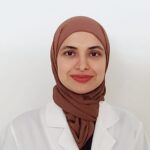
Shehzahdi Shebbrin Moonshi, PhD
Griffith University, Australia
Dr Shehzahdi Shebbrin Moonshi is an Early Career Research Fellow at the Queensland Micro- and Nanotechnology Centre, in Associate Professor Hang Ta group, Griffith University. Her projects are focused on the development of targeted theranostic nanomaterials for cardiovascular and cancerous diseases. She was awarded the GU Postdoctoral Fellowship scheme (2023-2024), 2022 Advancing Women’s Research Success Grant and New Researcher Grant in Griffith University for her research project and has produced 27 publications. She completed her PhD at University of Queensland, Australia. Her research interest is in the design and application of molecular imaging agents and drug delivery systems based on metal oxide and biocompatible polymers accompanied with the utilisation of multimodal imaging system such as MRI and Photoacoustic imaging.

Zinia Mohanta, PhD
Johns Hopkins University School of Medicine, USA
Dr. Zinia Mohanta is a Postdoctoral Fellow at the Kennedy Krieger Institute, Johns Hopkins University, School of Medicine in Baltimore MD. Her research interests include nanomaterials based magnetic resonance imaging (MRI) contrast enhancement, small molecule based chemical exchange saturation transfer (CEST) MRI contrast agents and CEST MR imaging using MRI reporter genes. During her PhD, she designed a new methodology for engineering graphene oxide (GO) surface chemistry and discovered the effect of oxidation degree of GO on its nuclear relaxivity using nuclear magnetic resonance (NMR) spectroscopy and MRI.
Her current work focuses on methodical assessment of the pharmacokinetics, biodistribution, and organ toxicity of Imidazole-4,5-dicarboxamide-diglutamate (I45DC-diGlu) for evaluating its synthetic adaptability in adjusting proton exchange properties and biodistribution for specific biomedical applications compared to the contemporary iodinated agents. Concurrently, her endeavors extend to the development of an innovative approach for labeling recombinant adeno-associated viruses (rAAV) with an MRI reporter gene. The initiative involves CEST imaging to assess CEST reporter gene expression, utilizing a mouse model of methylmalonic acidemia (MMA).
Beyond her academic pursuits, Dr. Mohanta currently serves as the co-president of the Johns Hopkins Postdoctoral Association (JHPDA) and holds a position on the board of Directors at the JHUSOM Institute of Excellence in Education. She is the recipient of WIMIN Scholar award at the World Molecular Imaging Conference 2023 and the Young Investigator award at the 2nd Alavi Bradley on Molecular Imaging and Theranostics 2023. She has also received the Career Impact Award 2023 from the Johns Hopkins University PHutures Office for her commitment to professional advocacy and mentorship excellence. She aims to contribute to WIMIN’s mission and leverage her experiences to foster a more inclusive and supportive environment for women in molecular imaging.
Lisa Wells, PhD, Invicro
Alumni/Founders

Katherine Ferrara, PhD
Inaugural Recipient of the WIMIN Outstanding Leadership in Molecular Imaging Award; Founding Chair 2012, Founding Member; Stanford University, USA
Katherine Ferrara is a Professor of Radiology at Stanford University. She is a member of the National Academy of Engineering and a fellow of the American Institute of Medical and Biological Engineering, IEEE, American Association for the Advancement of Science, Biomedical Engineering Society and the Acoustical Society of America. Dr. Ferrara’s initial academic training was in biology. She followed this with training as a physical therapist, 4 years of clinical experience and a second BS, MS and PhD in engineering. Early in her career, she was a project engineer for General Electric Medical Systems and contributed to the design of early magnetic resonance and ultrasound prototype systems. Following an appointment as an Associate Professor in the Department of Biomedical Engineering at the University of Virginia, Charlottesville, she served as the founding chair of the Department of Biomedical Engineering at UC Davis, now a department of 33 faculty members. Her laboratory is known for early work in aspects of ultrasonics and has more recently expanded their focus to broadly investigate molecular imaging and drug delivery. Dr. Ferrara’s laboratory has received numerous awards including the Achievement Award from the IEEE Ultrasonics, Ferroelectrics and Frequency Control Society, which is the top honor of this society.
Anna Wu, PhD, Past Chair 2013, Founding Member

Anna Moore, PhD
Past Chair 2014-2015, Founding Member; Michigan State University, USA
Dr. Moore has recently joined MSU as the Director of Precision Health Program and Assistant Dean at the College of Human Medicine after conducting research as a Professor of Radiology at Massachusetts General Hospital/Harvard Medical School for over 26 years. Her research is aimed at developing theranostic agents for imaging and therapy in cancer and diabetes.
Anne Menkens, PhD, Secretary 2011-2018, Founding Member

Julie Sutcliffe, PhD
Past Chair 2016-2017, WMIS President 2020, WMIS Co-President 2021; University of California Davis, USA
I was born in Rossendale, Lancashire UK and have three older brothers. I am currently a Professor in Biomedical Engineering and Internal Medicine at UC Davis where I am the co-Director of the Center for Molecular and Genomic Imaging and director of the Radiochemistry Research and Training Facility. I began my career in Molecular imaging in 1992 at the Hammersmith Hospital, London, UK and moved to the US in 2002 to take my faculty appointment at UC Davis. In 2005 I was diagnosed with breast cancer, I am a 10 year survivor. I look forward to getting to know you all through WIMIN and look forward to your hearing ideas on how we can do a better job at supporting women in science.

Naomi Matsuura, PhD, P. Eng
Past Chair 2018; University of Toronto, Canada
Dr. Naomi Matsuura, PhD, is an Associate Professor in Materials Science & Engineering and Biomedical Engineering, cross-appointment to Medical Imaging at the University of Toronto. She is also the founding Director of the Biomaterials Manufacturing Cluster (BioMC), created to support cross-disciplinary partnerships and international collaborations for large-scale, transformative, clinically focused, biomaterials engineering projects. A major focus of her lab is the design of new biomaterials to guide the personalized treatment of human disease, including research in externally activated theranostic agents, point-of-care diagnostics, and tissue-mimicking material development. Awards received include the John C. Polanyi Prize in Physiology/Medicine and Physics, an Early Researcher Award (Government of Ontario), a 2020 Suffrage Science Award (MRC London Institute of Medical Sciences, UK) and the 2022 WIMIN Mid-Career Award. Dr. Matsuura is on the Board of Trustees of WMIS and served as Co-Chair of the 2020 WMIC Program Committee. She is a Senior Editor of the Nanomaterials and Delivery Platform Section for Molecular Imaging and Biology and is on the Editorial Board for the Journal of Nanobiotechnology. She also serves on the NanoMedicine Innovation Network (NMIN) HQP Program Advisory Committee and is a member of the Advisory Committee for Diversity, Equity and Inclusion for WMIS.

Melissa Moore, PhD
Past Chair 2019; Sofie Biosciences, USA
Dr. Moore received her Ph.D. in Molecular and Medical Pharmacology from UCLA in 2008, before becoming the Director of Operations with Momentum Biosciences, a private business advisory group committed to accelerating the transfer of new technologies from the laboratory to the commercial environment. Concurrently, she held a post-doctoral appointment under the advisement of Dr. Michael Phelps. While at UCLA, Dr. Moore worked with faculty inventors in a wide variety of fields, including radiochemistry and PET imaging, to evaluate intellectual property for its commercialization potential.
In 2009, she became the Director of Technology Development for Sofie Biosciences, with a primary role managing SOFIE’s radiochemistry initiative, taking early ideas through the commercialization process. In 2014, Dr. Moore became SOFIE’s Chief Technology Officer, setting the direction for and overseeing R&D efforts. With the acquisition of Zevacor Pharma in 2017, Dr. Moore now manages the operations, quality/regulatory/EH&S, and new products divisions. While at SOFIE, Dr. Moore has served as principal investigator on SBIR grants and is a member of NIH review committees. She also holds an Assistant Researcher position at UCLA and is the co-founder of InformedTogether, a non-profit organization dedicated to educating patients and caregivers about molecular imaging. Before pursuing her doctorate, Dr. Moore worked for biotech start-up Egea Biosciences, Inc. (now a division of Centocor/Johnson & Johnson Pharmaceuticals).

Monica Shokeen, MBA, PhD
Past Chair 2020; Washington University School of Medicine, USA
Dr. Shokeen holds honors degree in Chemistry from University of Delhi, India, M.B.A. from Kurukshetra University, India and a Master and Ph.D. in Chemistry from Washington University in Saint Louis. She completed her post-doctoral fellowship at Washington University Medical School in radiochemistry and nanomedicine (2006-2009). Dr. Shokeen was appointed Instructor in Radiology in 2009 and tenure track Assistant Professor in Radiology in 2014. She holds an appointment in the Biomedical Engineering Department, and is a Division of Biology and Biomedical Sciences faculty in the Molecular Cell Biology program. She is a NIH funded investigator whose core research focus is to investigate dysregulated proteins and altered mechanisms in cancer and cardiovascular disease. Current projects in Dr. Shokeen’s lab span from basic science discoveries to efforts toward translating improved imaging approaches to patients. She is an active teaching faculty in the imaging sciences program, and mentors high school, undergraduate and graduate students, and post-doctoral researchers and visiting science scholars.

Jennifer Murphy, PhD
Past Chair 2021; University of California, Los Angeles, USA
Professor Murphy received her B.S. degree in chemistry (cum laude) from Santa Clara University in Northern California. She obtained her Ph.D. in 2010 from UCLA where she worked under the direction of Michael E. Jung on natural product total synthesis. Building on her desire to be part of a multidisciplinary research team, she transitioned to the David Geffen School of Medicine where she was a Scholar in Oncologic Molecular Imaging (SOMI) postdoctoral fellow in the Ahmanson Translational Imaging Division at UCLA. In 2012, Professor Murphy joined Tobias Ritter’s research laboratory at Harvard University as a visiting scholar. In the subsequent year, she joined the UCLA faculty at the Crump Institute for Molecular Imaging as an Assistant Professor in the Department of Molecular and Medical Pharmacology. Her lab resides in the California NanoSystems Institute and she is also a member of the Jonsson Comprehensive Cancer Center at UCLA.

Aisling Chaney, PhD
Past Chair, 2022; Stanford University, USA
Dr. Chaney is an Assistant Professor in the Mallinckrodt Institute of Radiology at Washington University in St. Louis. She is a neuroimaging biologist with extensive experience in clinical and preclinical molecular imaging of psychiatric and neurodegenerative diseases. Her research focuses on developing and evaluating novel PET imaging strategies to investigate the inflammatory component of devastating neurological diseases such as multiple sclerosis, Alzheimer’s and stroke, with the ultimate aim of improving how we understand, diagnose and treat these diseases. Specifically, she is interested in identifying early biomarkers of disease and utilizing complementary non-invasive molecular imaging and basic molecular biology techniques to elucidate the underlying pathogenesis. As a woman in STEM and a first-generation college student, she is extremely passionate about supporting the careers of women in science, and inspiring and mentoring the next generation of female scientists.

Michelle James, PhD
Co-Secretary 2021; Alumni Stanford University, USA
Dr. James is an Assistant Professor in the Departments of Radiology and Neurology, within the Molecular Imaging Program at Stanford (MIPS). She received her BS in pharmacology and medicinal chemistry at the University of Sydney, where she also earned her PhD in radiochemistry /neuropharmacology and was awarded the University Medal. More recently, Dr. James was awarded the Suffrage Science Award presented by the Medical Research Council at the Royal Society in London – an award given to ten leading female researchers around the world each year to celebrate their scientific achievements and ability to inspire others. Dr. James’ research is focused on designing and evaluating novel molecular imaging agents to improve the way we diagnose, treat, and understand devastating neurological diseases. In particular, she is interested in developing new positron emission tomography (PET) radioligands for visualizing the neuroinflammatory component of Alzheimer’s disease, multiple sclerosis, and pain with the goal of learning about the in vivo role, spatiotemporal dynamics, and different functional phenotypes of specific innate and adaptive immune cells throughout the progression of these diseases. The James lab applies these novel tools to track disease progression, guide therapeutic selection for individual patients, and serve as surrogate endpoints in clinical trials. As part of her work, Dr. James has multiple patented radioligands for imaging brain diseases, four of which are currently being evaluated in humans.
Dr. James is thankful for her own journey thus far and is committed to propagating the effective mentorship/teaching experiences she has benefited from to future generations of aspiring young scientists.

Gunilla Jacobson, PhD
Co-Secretary 2021, Alumni; Stanford University, USA
Dr. Gunilla Jacobson is the Deputy Director of the Molecular Imaging Program at Stanford (MIPS) at the Stanford School of Medicine. In this role, she works to support the scientific research programs, strategic planning, industry collaborations, clinical translation, and funding efforts related to the MIPS program. All work within MIPS is focused on innovations in the areas of precision medicine and precision health, with the goal of developing methods for early detection of disease, targeted and specific treatments of disease, and ways to predict disease in order to sustain health and prevent illness.
Previously Dr. Jacobson has held several academic positions at Stanford University, Karolinska Institutet, and is a Docent in Chemistry at Uppsala University, Sweden. Her expertise lies in the areas of in vivo molecular imaging, radiochemistry (11C and 18F) for PET, and designing and synthesizing theranostic probes and biocompatible nanomaterials.

Mirkka Sarparanta, PhD
Past Secretary, 2023; University of Helsinki, Finland
I earned my Ph.D. in Radiopharmaceutical Chemistry from the University of Helsinki, Finland, in 2013, followed by a postdoctoral fellowship at the Department of Radiology, Memorial Sloan Kettering Cancer Center in New York in 2014–2016. Since 2020, I have been an Academy of Finland Researcher and a Docent in Radiopharmaceutical Chemistry at the Department of Chemistry, University of Helsinki. The research of my group focuses on the development of new molecular imaging tools and radiopharmaceuticals for PET and SPECT imaging for diverse applications including immuno-oncology, drug delivery, theranostics and environmental pollutants to name a few. I am passionate about in vivo biomethodology and refinement, Ph.D. training, mentorship and supporting the professional growth and wellbeing of early career researchers as they navigate a career in academia. I’m a mother of two, a birdwatcher, a board game geek and an avid mushroom and berry picker. Through activity in WIMIN I’m hoping to be able to share this fantastic network with fellow early career European women in molecular imaging and contribute with my experience in building a career in the Nordic academia.

Carolyn Bayer, PhD
Alumni; Tulane University, USA
Carolyn Bayer is an Assistant Professor in the Department of Biomedical Engineering at Tulane University. Her research interests center on the development of novel medical imaging methods to study the dynamics of molecular expression and physiological function in vivo. The primary focus of her research is the development of in vivo combined ultrasound and contrast-enhanced photoacoustic imaging, including the development of algorithms for multiwavelength photoacoustic imaging.

Heike Daldrup-Link, MD, PhD
Alumni; Stanford University, USA
Dr. Daldrup-Link is a professor and UTL physician-scientist in the Department of Radiology. She established clinical and research services for children with cancer at Lucile Packard Children’s Hospital in close collaboration with pediatric oncologists and scientists, which now provide the most advanced pediatric cancer staging procedures currently available. Dr. Daldrup-Link currently serves as Director of Pediatric Molecular Imaging, Co-Director of the Cancer Imaging Program and Associate Chair for Diversity in the Department of Radiology at Stanford as well as member of the Office of Faculty Development and Diversity (OFDD) liaison team and the diversity communication advisory board of the School of Medicine at Stanford. Through all of these experiences, Dr. Daldrup-Link has first hand understanding of the needs, challenges and aspirations of trainees, junior faculty and senior faculty members. As a first generation physician-scientist, a first generation American and a female leader, she is committed to serve as a role model for any immigrant, anyone who is the first doctor in their family, any woman and anyone who experiences diversity related obstacles in their pursuits, that if we work hard with dedication and integrity, we can realize our full potential.
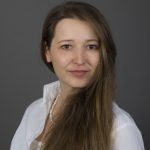
Karen Alt, PhD
Alumni; Monash University, Australia
The central objective of Dr Alt’s research is to develop imaging techniques to better understand the underlying mechanisms of different disease processes and the impact of therapy. As Head of the NanoTheranostics Laboratory and an NHMRC MRFF Career Development Fellow at Monash University, Melbourne, Australia she is an emerging research leader in the field of antibody side-specific modification and molecular imaging across several disciplines such as cancer, thrombosis, as well as inflammatory diseases. Karen has a long-term expertise in antibody technology including their enzymatic bioconjugation with the transpeptidase Sortase A for site-specific incorporation of a function group without effecting the biological purpose and their usage for molecular imaging.

Susanne Kossatz, PhD
Technical University Munich, Germany
Dr. Susanne Kossatz is an Assistant Professor in the Department of Nuclear Medicine and the Central Institute for Translational Cancer Research (TranslaTUM) at the University Hospital Klinikum rechts der Isar at Technical University Munich, where she heads the research group “Imaging and Biomarkers in Oncology”. Dr. Kossatz studied Biology at the Friedrich Schiller University Jena, from where she also obtained her PhD in the field of Molecular Imaging. She conducted her postdoctoral studies in the Thomas Reiner Lab at Memorial Sloan Kettering Cancer Center in New York. Dr. Kossatz has received many awards, including several Young Investigator Awards and Fellowships. Dr. Kossatz’ research focuses on the development and clinical translation of molecular imaging tools for improved tumor detection, intraoperative delineation, treatment and monitoring. This includes radioactively and fluorescently labelled small molecules and peptides, their pharmacokinetic optimization, preclinical validation and translational studies for clinical use. A major research focus revolves around transforming inhibitors of the DNA repair enzyme PARP into powerful molecular tools for a variety of clinical applications for cancer diagnosis and therapy.

Rong Zhou, PhD
Alumni; University of Pennsylvania, USA
Rong Zhou, PhD, is a research Associate Professor of Radiology at University of Pennsylvania, a member of the Abramson Cancer Center and a faculty member of Bioengineering Graduate Group. Her current research aims to develop metabolic imaging markers of the cancer and heart failure. Recipient of NIH funding, she has also built up collaborations with the biotech industry to integrate in vivo imaging techniques (MRI/S and PET) with the development of new therapeutic approaches.

Hang Ta, PhD
Alumni; University of Queensland, Australia
Dr. Hang Ta is a Research Group Leader at the University of Queensland (UQ). She holds joint appointments at School of Pharmacy and Australian Institute for Bioengineering and Nanotechnology at UQ. She has been awarded a number of CIA research funding, including a number of travel grants, research project grants and prestigious fellowships. Her current areas of interests are novel nanomaterials for molecular imaging and delivery of therapeutics in cardiovascular diseases.
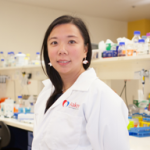
Xiaowei Wang, PhD
Alumni; Baker Heart and Diabetes Institute, Australia
Xiaowei is a Group Leader (Molecular Imaging and Theranostics) at the Baker Heart and Diabetes Institute in Melbourne, Australia. She graduated with a Diploma in Cardiac Technology in Singapore, and worked as fully trained medical ultrasound specialist, before she moved to Australia. Xiaowei’s research focuses on targeting different molecular markers using contrast agents, for a range of imaging technologies (such as ultrasound, MRI, PET, CT and optical/fluorescence), as well as the development of targeted drug therapy for cardiovascular diseases. Xiaowei is also the President of the Australian Society of Molecular Imaging, as well as the President–Elect of the Federation of Asian Societies of Molecular Imaging.
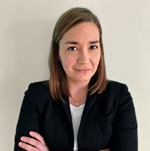
Ashley Knight, MSc
Alumni; University of Toronto, Canada
Ashley holds an MSc in pharmaceutical sciences from Northeastern University and a BSc in Biochemistry, from the State University of New York College at Geneseo. She is currently pursuing a Ph.D. in the Centre for Addiction and Mental Health at the University of Toronto. Her research focuses on the characterization and development of novel PET radioligands for imaging neurodegenerative diseases.
Previously, Ashley held Scientist roles at Biogen and Eisai where she focused on the characterization of a wide variety of imaging agents for use in drug development. Her work translated across preclinical and clinical studies.
Her expertise ranges from the development of in vitro pharmacology assays and validation with histopathological and molecular techniques to in vivo SPECT/CT and PET/CT imaging in a number of models across neurology, oncology, and immunology disease areas. Ashley’s research interests include development of radioligands for imaging tau in non-Alzheimer’s tauopathies, learning to better communicate across business areas in the drug development industry, and creating opportunities for young scientists. She is excited to connect with others that are interested in molecular imaging and networking across both the pharmaceutical industry and academia. @Ashleyk24679250

Kayla Bowers, BS
Alumni; Sofie Biosciences, USA
Kayla Bowers is a Clinical Account Executive for SOFIE biosciences. She joined SOFIE in 2017 and has worked on both the sales and the contract manufacturing sides of the company. She was brought on as a project coordinator for a non-profit founded by both Melissa Moore and Julie Sutcliffe (also members of WIMIN) called Informed Together. Informed Together is a non-profit organization dedicated to educating the public about the use of medical imaging in diagnosis and treatment. She looks forward to getting to know everyone and to learn more about the academia side of the industry as well as the clinical side.
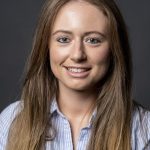
Fay Nicolson, PhD
Alumni; Dana-Farber Cancer Institute/Harvard Medical Center, USA
Fay completed PhD in Chemistry from the University of Strathclyde, UK in 2018. In 2018 she joined the Department of Radiology at Memorial Sloan Kettering Cancer Center (New York, USA) as Postdoctoral Research Scholar. In August 2019 she relocated to Boston, USA where she is currently a Postdoctoral Research Fellow in the Departments of Imaging and Cancer Biology at Dana-Farber Cancer Institute and Harvard Medical School. Fay’s research interests lie in the field of optical imaging, specifically surface enhanced spatially offset Raman spectroscopy (SESORS) for the non-invasive imaging of cancer. In comparison to traditional Raman imaging, SESORS offers superior depth penetration at more clinically relevant depths, whilst still maintaining microscopic precision and specificity in a non-invasive manner. Her work in this area has been recognized through awards and fellowships including a Coblentz Society Travel Award, Metrohm USA Young Chemist 2020 (Runner-up) and a DFCI Trustee Science Committee Postdoctoral Fellowship. Fay is grateful to the mentors who have promoted, encouraged and supported her thus far in her career and is committed to ensuring the next generation of female scientific leaders receive the same opportunities.

Paula Foster, PhD
Western University, Canada
Dr. Paula Foster, PhD is a Professor in the Department of Medical Biophysics at Western University and leads the Cellular and Molecular Imaging Research Program at Robarts Research Institute. Her research is mainly focused on the development and application of MRI cell tracking techniques and iron- and fluorine- based cell labeling technologies for in vivo imaging of cells in experimental animal models. A major focus of research in the Foster lab is tracking cancer cell dormancy and metastasis and inflammatory cells associated with tumors, in preclinical models of cancer. Cellular therapy is another exciting area where these cell tracking techniques are important. In the Foster lab cellular MR imaging has been used to monitor the fate of immune cells used for cancer immunotherapy and transplanted mesenchymal stem cells to treat various diseases and injuries. More recently the Foster Lab has been studying magnetic particle imaging (MPI) for in vivo cell tracking. Dr. Foster served as Chair of the Program Committee for WMIC in 2010 (Kyoto) and 2011 (San Diego).
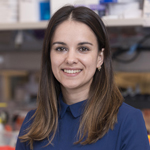
Patricia Pereira, PhD
Alumni; Memorial Sloan Kettering Cancer Center, USA
Patricia completed her Ph.D. training in Medicinal Chemistry at the University of Aveiro & Faculty of Medicine University of Coimbra, Portugal. During her Ph.D. studies, she undertook international work exchange programs at BAM in Berlin (Germany) and Hunter College in New York (USA). In November 2016, Patricia joined the Department of Radiology at Memorial Sloan Kettering Cancer Center (New York, USA) as a Postdoctoral Research Fellow.
Patricia’s research interests aim at tuning the availability of surface targets by elucidating their regulatory mechanisms to enhance cancer imaging and targeted therapies. Her work on cancer molecular imaging has been recognized with awards and fellowships: Young Investigator Award at the International Gastric Cancer Conference in 2019, Tow Fellowship Award, and a GMTEC Scholar Fellowship. She was also awarded one of the 30 early career professionals selected as “Ones to Watch” in 2020 by the Society of Nuclear Medicine and Molecular Imaging.
Patricia has many gender-diverse role models whom she looks up to and feels confident asking for professional guidance. Her active role in the WIMIN interest group aims at helping other women and underrepresented minorities in science while serving as a role model.

Nimmi Ramanujam, PhD
Alumni; Duke University, USA
Dr. Ramanujam is an innovator, educator and entrepreneur. Her mission is to develop technology that will have a wide-reaching impact on women’s health. She directs the center for Global Women’s Health Technologies at Duke where she empowers trainees at Duke and beyond to create impactful solutions to improve the lives of women and girls globally.
Dr. Ramanujam has spent the last two decades developing precision diagnostics and most recently precision therapeutics for breast and cervical cancer, with a focus on addressing health disparities. She has more than 20 patents to-date and over 150 publications for screening, diagnostic, and surgical applications. She has raised over $30M of funding to pursue these innovations through a variety of funding mechanisms including NIH R01s and R21s, NIH Bioengineering Partnerships, NCI Academic Industry Partnerships, NIH Small Business grants and USAID funding. As the founding director of the Center for Global Women’s Health Technologies at Duke, she has developed a consortium of over 50+ partners including international academic institutions and hospitals, non-governmental organizations, ministries of health, and commercial partners; this consortium is working to ensure that the technologies developed at the center are adopted by cancer control programs in geographically and economically diverse healthcare settings.
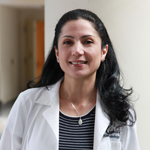
Dima Hammoud, PhD
Alumni; NIH Clinical Center and the National Institute of Allergy and Infectious Diseases, USA
Dr. Hammoud is an investigator and deputy director of the Center for Infectious Disease Imaging (CIDI), a joint initiative between Radiology and Imaging Sciences (RIS) at the NIH Clinical Center and the National Institute of Allergy and Infectious Diseases (NIAID). Dr. Hammoud earned an MD degree at the American University of Beirut in Lebanon. After her diagnostic radiology residency, she completed two fellowships in Neuroradiology and PET imaging at Johns Hopkins School of Medicine and then joined the Neuroradiology faculty as Assistant Professor. In 2006, she joined the Neuroradiology faculty at NIH.
Research in the Hammoud lab focuses on the development of preclinical, translational, and clinical molecular imaging applications to improve the understanding of the pathophysiology of infection and to provide reliable imaging biomarkers of infectious diseases. Research in her laboratory focuses on understanding the pathophysiology of HIV infection, both in the brain and in the periphery, using non-invasive molecular imaging techniques, mainly positron emission tomography (PET). Another major interest of the Hammoud lab is the development and validation of fungal-specific imaging biomarkers in animal models and patients. She is also an expert in imaging high-consequence viral infections such as Ebola, Nipah and Lassa viruses, in collaboration with the Integrated Research Facility (NIAID), a BSL-4 biomedical research facility based in Fort Detrick, Maryland.
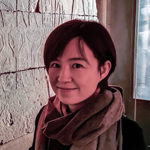
Nan Li, PhD
Alumni; Massachusetts Institute of Technology, USA
Dr. Nan Li is a Research Associate in Prof. Alan Jasanoff’s lab in the Department of Biological Engineering at the Massachusetts Institute of Technology. Her general research interest is to develop and implement novel molecular functional MRI techniques to solve brain science problems in health and disease. Nan received her B.S. from Shanghai Jiao Tong University in China, and her Ph.D. from Johns Hopkins School of Medicine, both in Biomedical Engineering.

Savita Dhanvantari, PhD,
Alumni; Lawson Health Research Institute & Western University, Canada
Dr. Dhanvantari is an Assistant Scientific Director and Scientist in the Diabetes/Metabolism and Imaging Programs at the Lawson Health Research Institute, London, Ontario, Canada. Lawson is a hospital-based research institute affiliated with Western University, at which she also holds an appointment as Assistant Professor in the Departments of Medical Biophysics and Pathology/Laboratory Medicine. Dr. Dhanvantari has established a program of cardiac molecular imaging research in collaboration with chemists, imaging physicists and cardiologists, generating and characterizing fluorescent and PET ligands that target biomarkers of heart disease. She is the founding Director of the Collaborative Graduate Program in Molecular Imaging at Western University, the only program of its kind in Canada. Dr. Dhanvantari is now the Director of the Biomedical Imaging Research Centre, a city-wide “virtual” centre that facilitates collaboration between imaging researchers, clinical and industrial partners. She fosters a collaborative, supportive and kind research environment for my trainees that values principles of equity, diversity and inclusion in science. She is also working to implement these values into the institutional structures of Lawson and Western.
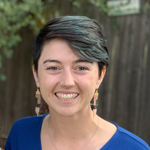
Carmen Azevedo, BS
Alumni; Stanford University, USA
Carmen Azevedo is a lab manager and research assistant in the Department of Radiology at Stanford University. Her current research focus is developing radiotracers for imaging neuroinflammation in MS using mouse models, with the goal of clinical translation. Prior to joining Dr. Michelle James’ lab, she worked in the cyclotron and radiochemistry facility, part of the the Molecular Imaging Program at Stanford, where she performed routine clinical production of radiotracers and assisted in facility management, including preparing INDs. Carmen is an experienced radiochemist with an interest in learning more about choosing targets for novel radiotracers and is passionate about encouraging women and underrepresented folks in STEM. She earned her bachelor’s degree in biochemistry from Oberlin College in 2015.

Sarah Burris, PhD
Alumni; FUJIFILM VisualSonics, USA
Sarah earned her PhD in Pharmacological and Physiological Science from Saint Louis University in 2005. Subsequently, she completed 2 academic postdoctoral fellowships and was the Director of the Core Cardiovascular Surgery Facility for the Department of Cell and Molecular Physiology at Loyola University—Chicago until she left in 2017. Currently, Sarah is the Scientific Applications Liaison for FUJIFILM VisualSonics, a company that designs and manufactures ultra-high frequency ultrasound and photoacoustic imaging systems, for both research and clinical use. Her efforts there are focused on expanding the scientific outreach and impact of the company through engagement of the company’s key opinion leaders, overseeing their Scientific Advisory Board, coordinating workshops, and overseeing the company’s grant writing assistance program, VisualSonics travel award competitions, and customers webinars. Sarah also has an adjunct teaching position at the School of the Art Institute in Chicago, a position she has had for the past 4 years.
Lilja Solnes, MD, Alumni, Johns Hopkins Medicine
Anna Christensen, PhD, Alumni, Magnetic Insight
